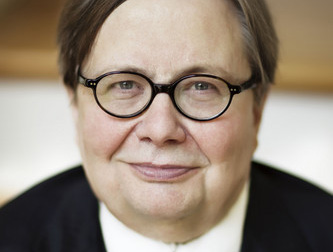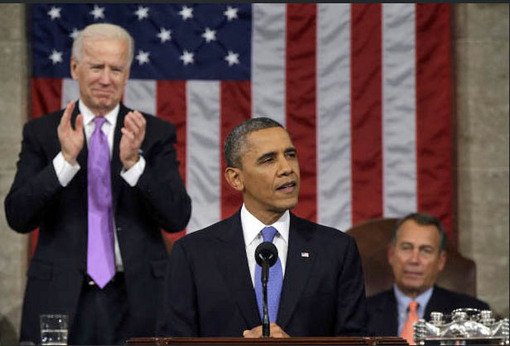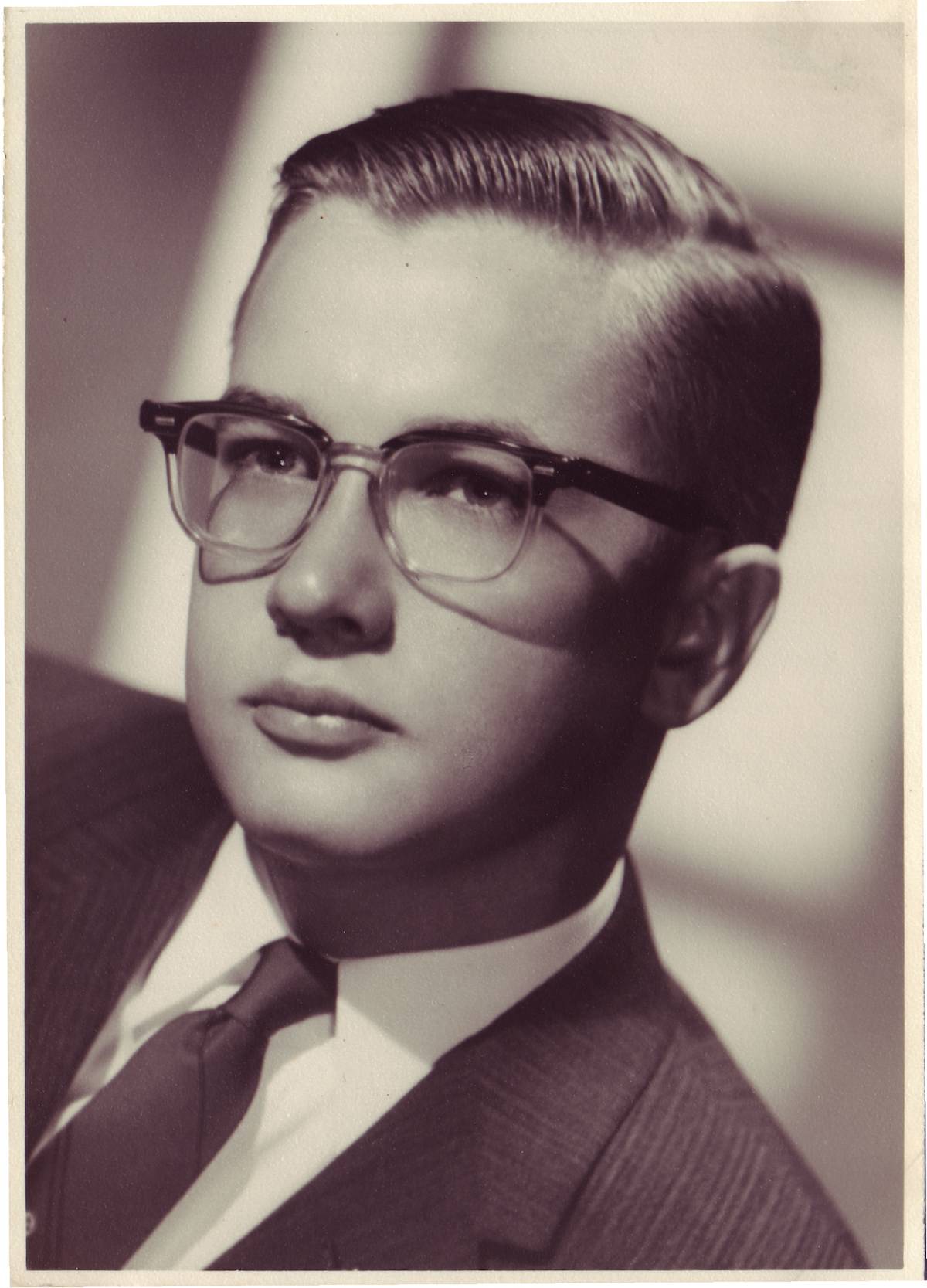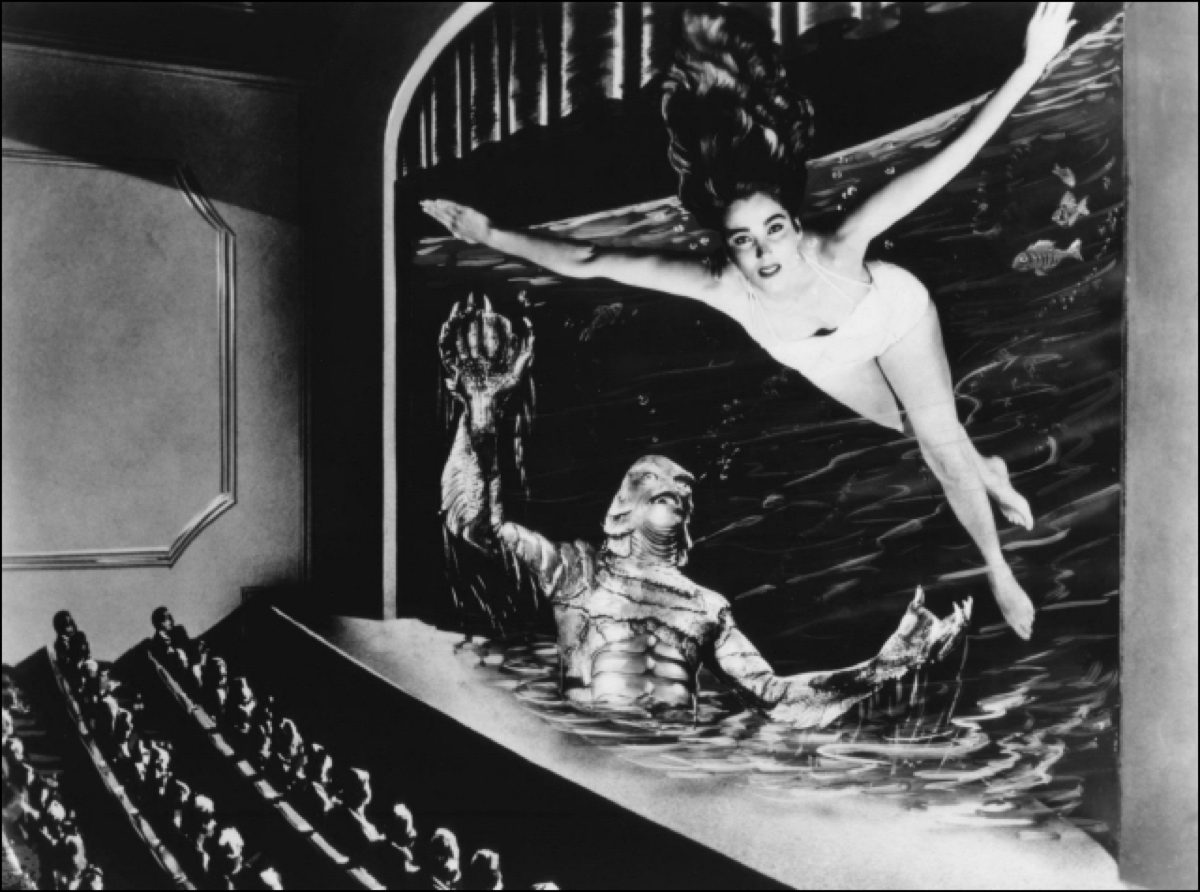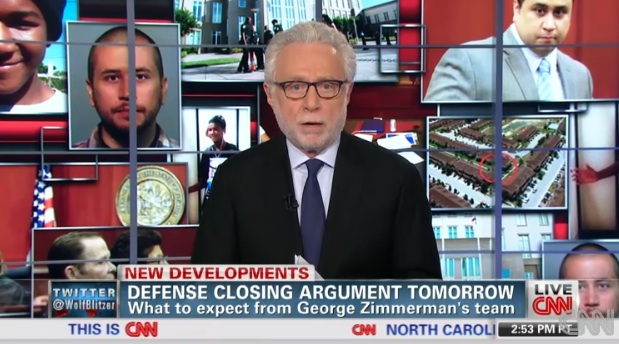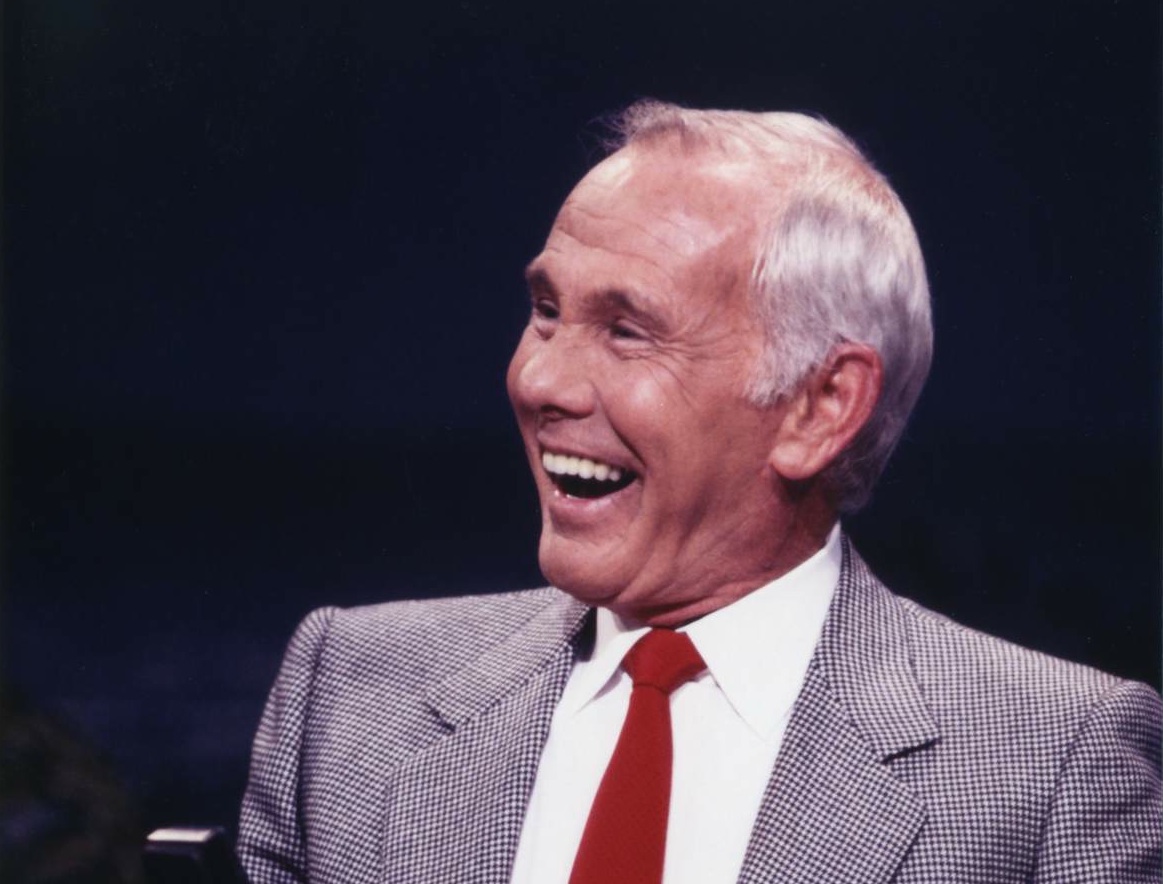Back in ancient days of rampant ignorance and sexist effrontery, a TV commercial for a product now forgotten depicted a happy married couple whose cheer seemed guaranteed by the woman’s subservience to the man. At the end of the ad he uttered a phrase that entered, to the dismay of millions, the iconography of the time: “My wife — I think I’ll keep her.”
On Tuesday night in Washington, Barack Obama essentially renewed his vows with the American people, especially those who voted him back into the White House for a second term, by delivering a forceful and dramatic State of the Union address. It was a speech intended, at least partly, to let viewer-voters know that the whirlwind chief executive appreciates their display of faith. And you could all but hear a chorus of satisfied citizens affirming their choice: “Our President — we think we’ll keep him.”
Okay, they basically already said that in November when casting their ballots, but in his speech Obama was approving our approval and reassuring us that our faith in him is justified and that he’s going to pursue the course implicitly endorsed on Election Day. We’re all in this together, he said, and we can rest assured we’ve got the right guy steering the ship. It’s certainly not going to flop over in the waves and end up on its back like a turtle.
Obama’s speech did tick off one pressing crisis after another, but Obama emphasized that every problem can be solved, and in making the point repeatedly he set up a rhetorical rhythm that probably echoed the religious refrains he heard in church as a young man: “We can do this,” and “We can get this done,” and similar sentiments, each repeated as the crowd’s applause, and seemingly its enthusiasm — its passion, even — grew in fervor. Obama’s delivery turned quasi-musical and essentially evangelistic once he got two-thirds into the speech and took on the touchiest topic of the night, gun control — a national fixation in the aftermath of such terrible tragedies as the murders of schoolchildren in New Town, Conn., and, at the very moment the President spoke, the fiery shooting death of an apparently deranged and homicidal ex-cop in southern California.
The president stayed safely away from flamboyance or posturing that could be seen as demagoguery. A refrain like “Let’s get it done, let’s get it done” was spoken almost conversationally, not with wild-eyed fanaticism, but the words still carried hefty impact. There are no unconquerable problems, Obama was saying, whether talking about the ease with which lunatics can obtain assault weapons or the difficulty that middle-class couples have getting their homes re-financed.
One of his most quotable lines came earlier, and it was in part an attempt to subvert what the Republicans were tediously certain to say in their response to the presidential address later in the evening. “It is not a bigger government that we need,” Obama said, “but a smarter government.” He wanted to make that distinction and not have to hear Republicans say, yet again, that he was calling for a bigger, fatter, richer, more intrusive, more obnoxious federal government. But none are so deaf as those who won’t listen. So it was that Rep. Senator Marco Rubio (R-Fla.), currently a media darling, materialized after the President’s address to deliver the GOP response and insisted that in his speech, Obama had again endorsed the idea that “every problem can be solved by the government.”
But he didn’t say that. He didn’t even imply it. He went out of his way not to say it. The loyal opposition, however, keeps playing the same broken record over and over, with Rubio declaring vaguely that many of the nation’s problems were caused by some sort of “moral breakdown” in our society, not by the conspicuous failures of Congressmen and Senators.
As Bob Schieffer noted in après-speech commentary for CBS News, it is “very hard to compete” with the President after he has delivered a speech to the nation amid the hoopla and pageantry that surround presidential appearances. No sooner had Mr. Obama walked into the cheering House chamber than he stopped in his tracks to press flesh and grin greetings and look lovable while slowly making his way up the aisle to the platform from which he would speak. When, an hour later, he walked out via the same route, he even paused to sign autographs, which always seems kind of a tacky thing for a president to do after making a televised address to the nation. This isn’t some damn county fair.
Signing autographs isn’t the president’s idea. People thrust pieces of paper in his face and he obligingly scribbles on them. But it looks so tacky. And it’s what used to be called in broadcasting (maybe still is) “Dead Air.” Nothing much is happening but we’re all forced to stare at it anyway. Sometimes it seems that Obama enjoys these particular trappings of power just a wee bit too much — but on the other hand, it’s good to have a president who appears not only comfortable in the job but who actually relishes it.
The portion of the speech dealing with gun violence — what might be considered the third act of the address — was the most forcefully written and delivered. Even here, the president stopped short of pounding a fist on the rostrum and playing on emotions. Speaking about victims of gun violence, some of whom had been seated in the gallery, the President asked rhetorically if the matter of gun control doesn’t at least deserve being brought to the House and Senate floors and debated there. “They deserve a single vote,” he stressed, in another of his thematic refrains. “They deserve a vote!”
And in an eloquent rebuff to the constant chant that government “IS the problem” and that everything would be ducky if the government shrank or shriveled up or maybe just stole away in the night, like a football team being hustled out of Baltimore and off to another city, the president said with affecting simplicity, “We were sent here to make what difference we can.” There was, indeed, something grimly absurd in Rep. Rubio’s implicit assertion that government should buzz off, like an ogre in a bad dream.
If government is so evil and ought to get lost, then what the hell was Rubio doing there — selling No-No hair clippers?
While the content of Obama’s speech was bound to make news, so too were the means of its delivery. Diane Sawyer and her colleagues at ABC News, the best gang currently working the national beat for television (though NBC’s Brian Williams is the best anchor), pointed out that streaming of the speech on Twitter and elsewhere on the Internet had resulted in “727,000 tweets” by the time the speech ended. In a potential historical first, it was also reported, the president’s speech aired on Cuba’s state-run television channel.
It was more annoyance than embellishment, however, when ABC ran tweatings and text messages along the bottom of the screen, some from ABC correspondents but others from — who? The man in the moon? These asides really added nothing, and putting them there suggests that too-restless ABC News producers fear the audience will become bored by anything so prosaic as a presidential address — that we poor, dumb viewers need gingerbread and geegaws and other visual junk running around on the screen in order to sustain interest.
NBC News also took note of tweets about “SOTU” — yes, like everything else in Washington, the State Of The Union address has to be reduced to some trite abbreviation — but streams and tweets were nowhere near as valuable as comments by Andrea Mitchell, Chuck Todd and other network stalwarts. Williams, who sometimes comes across as strangely sad when delivering the news (then again, the news usually is pretty damn sad) brightened to the task at hand, getting a buzz from politics.
Before the speech, Diane Sawyer’s co-anchor George Stephanopoulos said it was being estimated that, depending on how much applause the president got, the speech would probably last about an hour — and as Judy Woodruff pointed out on PBS, it came in just “a second or two” short of that. It didn’t seem a minute too long, however, and what better gauge of a speaker’s effectiveness is there than that?
